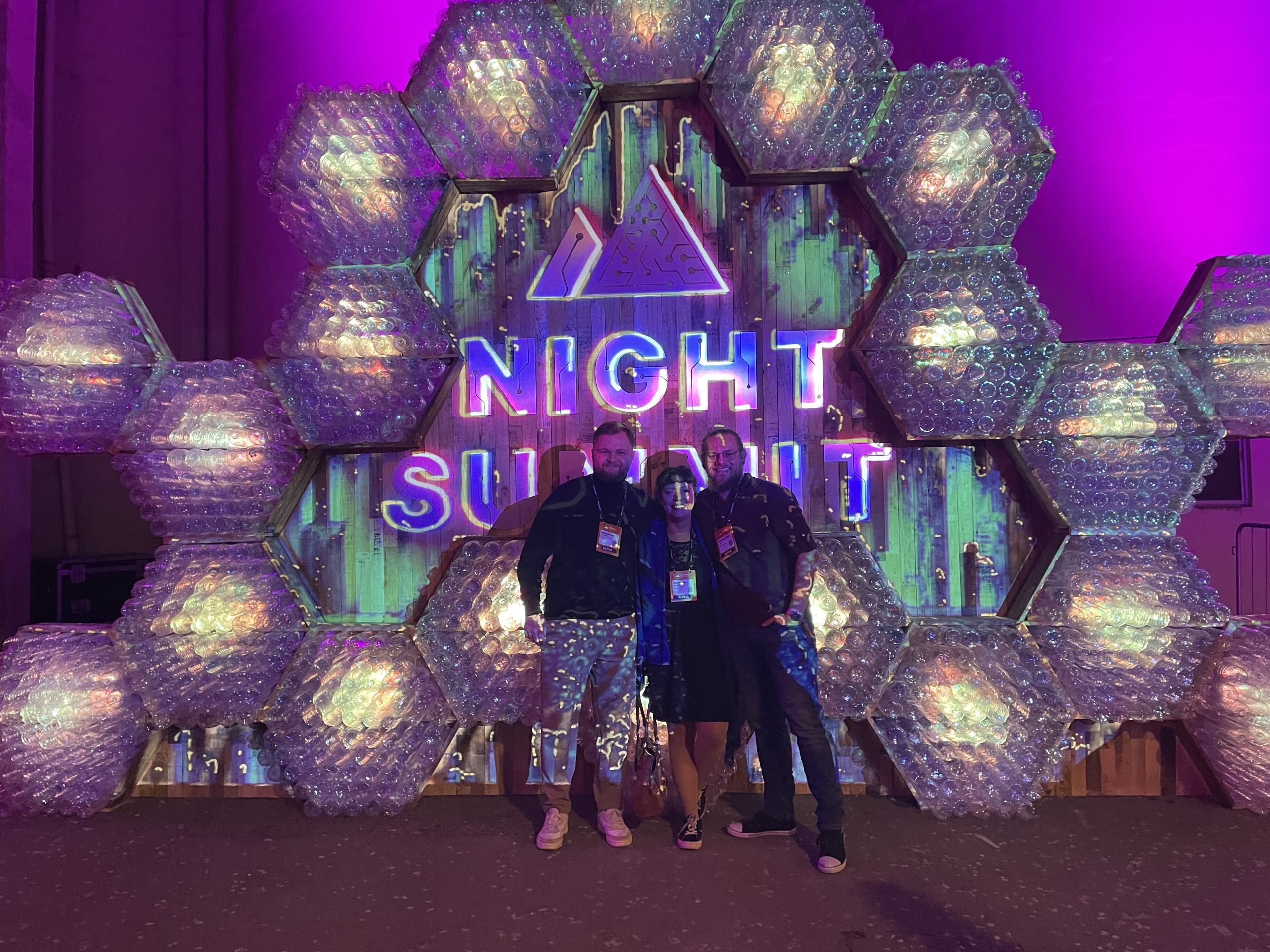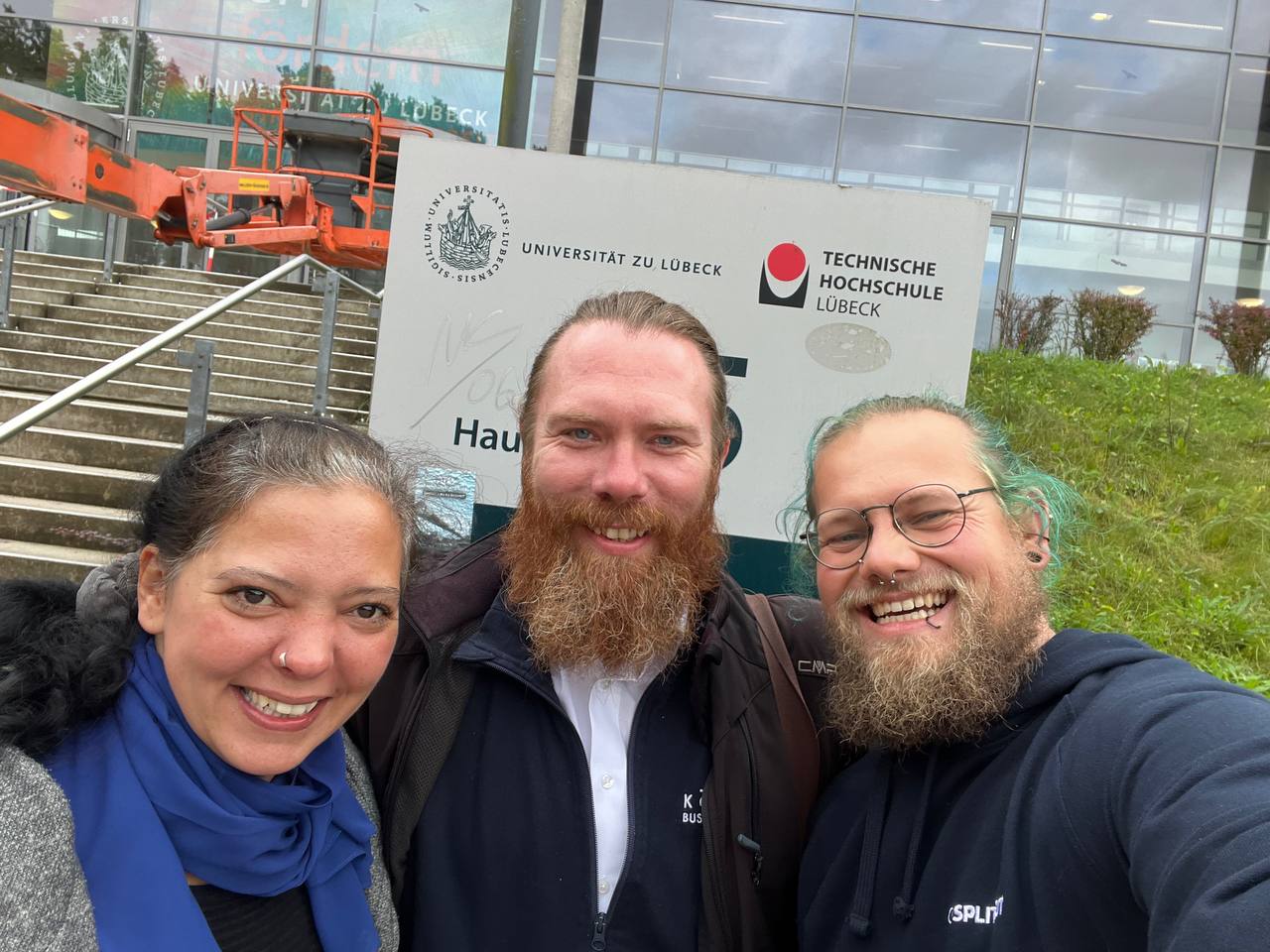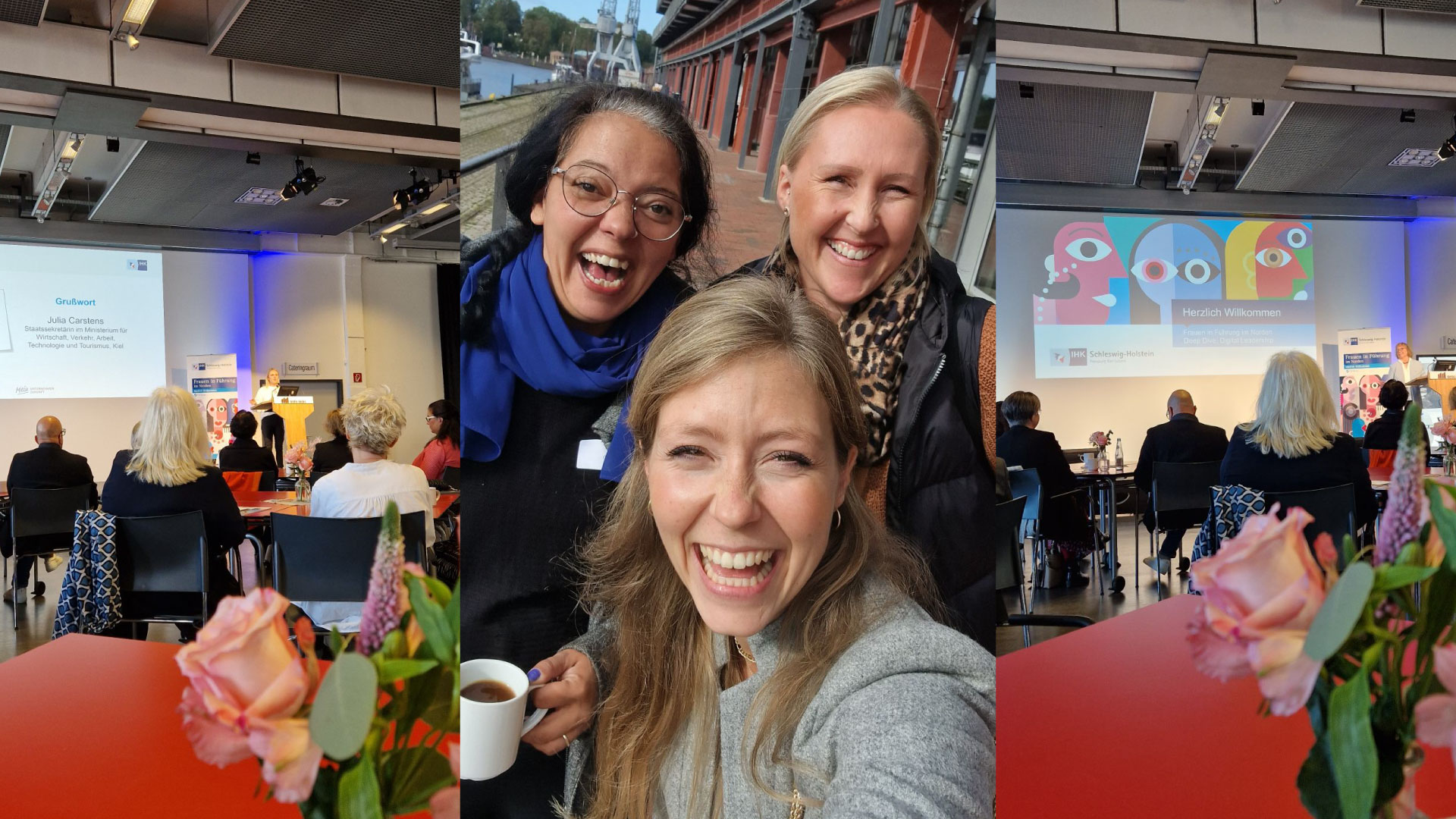Today we had the first snow of the year. It’s hard to believe that just a few days ago we were strolling through sunny and warm Lisbon without a jacket and scarf.
In mid-August, we applied to participate in the ALPHA program of the Web Summit without initially imagining we had a great chance of participating. But then, a few days later, an employee from the Startup Team contacted us and invited us to an online meeting. Shortly thereafter, we received the joyful message: We’re in!
The ALPHA program includes three-day access to the Web Summit for three people. In addition, an exhibition stand on one of the three days and the opportunity to apply for further startup activities. We didn’t want to miss out on this, of course, and also applied to participate in the PITCH competition, the Startup Showcase, and 40 Words. Our efforts paid off and we actually received two acceptances.
So, on November 13th, we set off from Hamburg to Lisbon. To spare our wallets, we had chosen a cozy apartment in the Alfama district. Although we didn’t make it to the opening event in time, we were able to make first contacts at the Night Summit in the Hub Criativo do Beato and enjoy the Portuguese flair.
On Tuesday, we were able to present Splitbot at our stand all day. Here, too, there were many interesting discussions with potential customers and partners, and it became clear that we stand out strongly from other startups with our self-developed code. After a short stop back at our accommodation, we were guests at the German Startup Night in Factory Lisbon in the evening. This was hosted by the Federal Ministry for Economic Affairs and Climate Action, among others, and we ended the exciting day with stimulating conversations with people from a wide range of industries.
We took things a little easier on Wednesday. After a morning meeting with a potential investor in the old town of Lisbon, we attended several pre-arranged appointments. Again, great contacts were made, which we have already been able to further develop and utilize. In the afternoon, we enjoyed the fantastic diversity of Lisbon on a ride in the traditional tram and then met up with some startup colleagues for tapas.
On Thursday, we went full throttle one last time and cheered on our developer Bartosz at the Splitbot presentation in the Startup Showcase – a two-minute bare-bones pitch on a big stage. Bartosz presented as confidently as ever and received a lot of applause and further exciting contact details. Afterwards, we went straight to the airport and back to our home turf.
We thank everyone who has accompanied us on our journey and look forward to the coming year.



